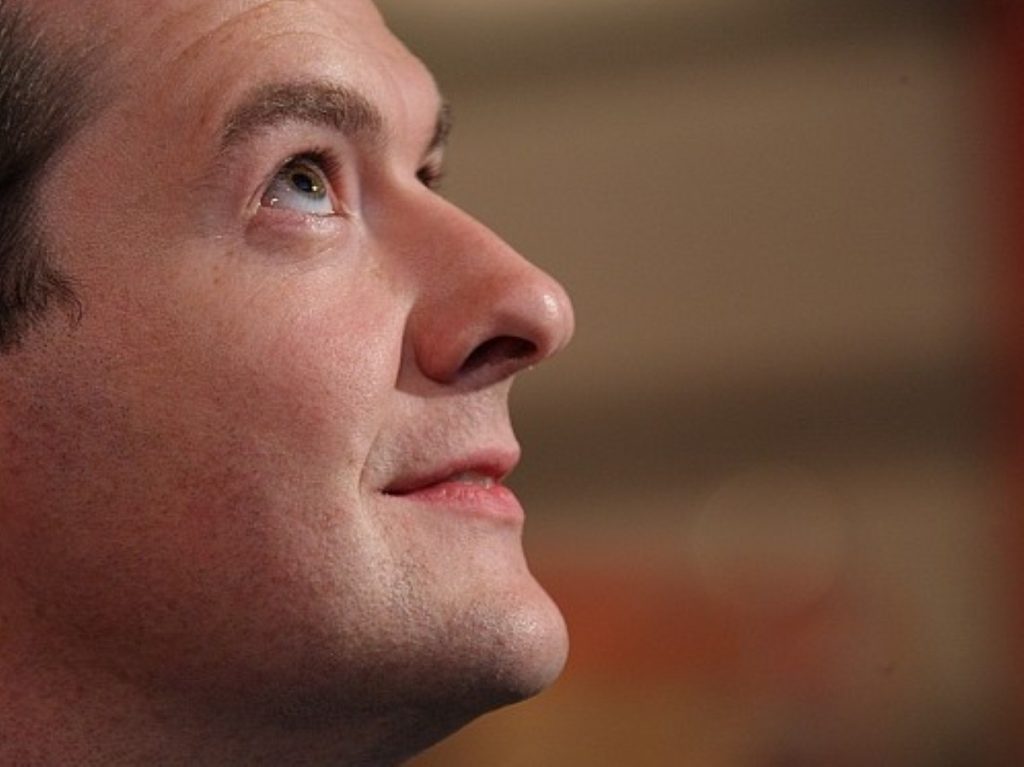Analysis: Why Labour is at its strongest in a Tory trap
Why is Westminster so worked up about a bill which stands no chance of being defeated? Despite a tiny (probably five-strong) Lib Dem rebellion against the welfare benefits uprating bill, it will certainly get a second reading and eventually pass into law. It didn't even need to be a bill in the first place. The only reason it exists is because George Osborne wanted some Commons theatre to publicise his policy dividing line. He wouldn't have risked it if there was any chance of it failing.
The benefits debate is not important because of the result, but because of where it puts political debate in the build up to the 2015 election. It's the front line of Conservative and Labour efforts to massage public opinion in their direction.
The polling on welfare is a mess, and that makes it malleable. The Tories think they're on to a winner because the public views out-of-work welfare payments harshly. Seventy-six per cent support stopping out-of-work benefits for people who refuse offers of employment. Seventy-four per cent want to cap the benefits available to any single family to £26,000 a year. Forty-seven per cent don't believe the government is being tough enough on benefits.
But public opinion on the one per cent benefits rise is much tighter than expected. Forty-five per cent back it, while 35% oppose it.


Researchers occasionally hand focus groups stereotypical images of people and ask which party they associate them with. In these tests, the public strongly associates Labour with the feckless layabout in a white string vest watching TV on a weekday afternoon. And yet the party is the most trusted on the issue, by 30% to 22%. It's all very confusing.
The abject state of public understanding of the benefits system doesn't help. For instance, the average voter believes 41% of Britain's welfare budget goes on benefits to unemployed people. In reality, just three per cent does. In general, the less people know about benefits, the more opposed they are towards them.
So Labour feels there is all to play for, even if they are starting on the back foot. It's hoping the public mood will turn against the Tories when they realise the cap is hitting at work families on low wages who rely on government help to make ends meet. The debate is perilously close to the mythical political territory of 'British fair play'. Contradicting this impulse is the most dangerous thing a party can do, as Gordon Brown discovered to his cost over the 10p tax rate.
Labour is hoping this issue symbolises its assertion that austerity is an ideological, rather than a practical, tactic. That may not be so difficult to achieve. The Institute for Fiscal Studies suggests seven million working households will be affected. The more extreme research from think tanks and pressure groups talks of poor families having to chose between energy and food, or being unable to pay their rent and being turfed out their homes.
Osborne's open enjoyment of his dividing line tactics – and the talk of 'skivers' and 'strivers' – could make the Tories seem like heartless Machiavellians, indifferent to the suffering of the working poor as they play their political games. As Tory MP Sarah Wollaston tweeted today: "Not just libdems unhappy at terms like 'skivers'. Difficult decisions should not use divisive rhetoric."
The welfare debate sees Labour at its most vulnerable, stuck in a trap specifically designed to capitalise on its weakness. But it is also its best chance of pressing home its core attack on the Tories: that they are out-of-touch right-wingers making the working poor pay for a rich man's recession.

